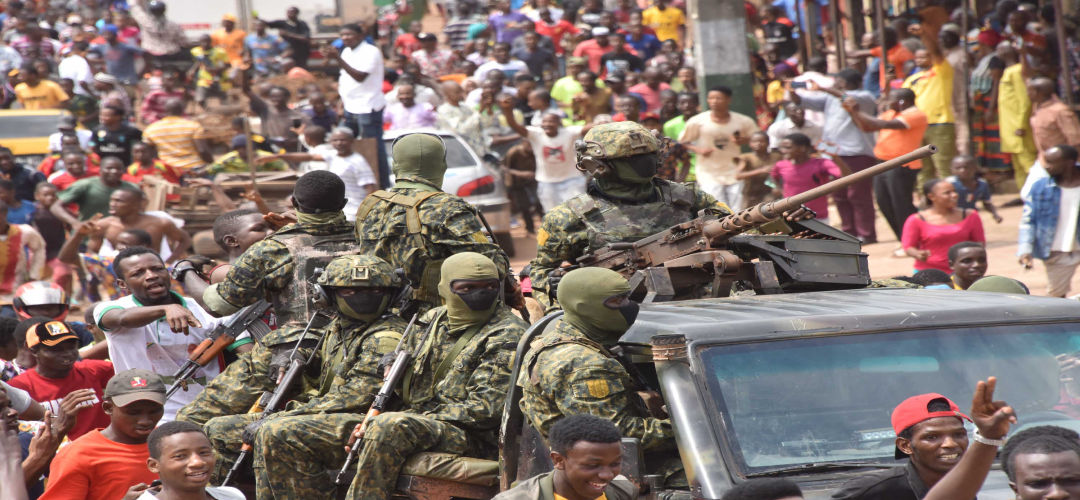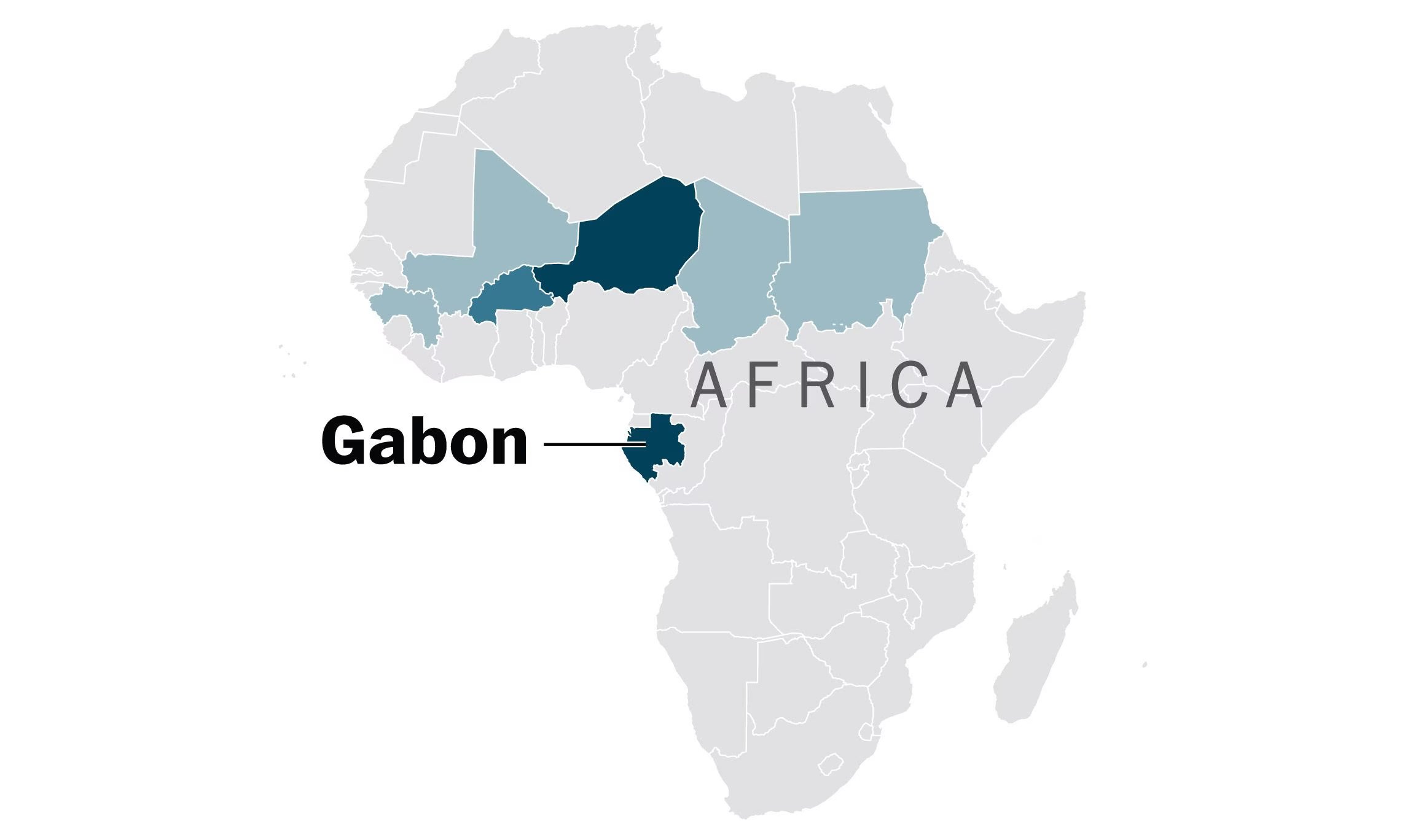Falling Like Ninepins!
September 9, 2023 | Expert Insights

Gabon has experienced a military coup d’état, the eighth in Africa since August 2020, and the sixth Francophone country to suffer this ignominy. It speaks volumes of the French 'success' in nurturing democratic norms in their erstwhile colonies with whom they retained much more closer relations than their colonial rival, Great Britain.
In its typical brusque manner, the military cited electoral malpractice as the reason to send a democratically elected President packing. Thankfully for the ousted president, Mr Ali Bongo, Gen Brice Oligui Nguema, the coup leader (who has sworn himself onto the chair vacated by Ali Bongo) showed grace by offering his predecessor the option to leave the country rather than putting a bullet through his head or even worse, as was the norm in the last century.
As coups go, there is nothing remarkable about this one, especially going by the recent trend in Africa. The tragedy is that much of the world now accepts these events as a norm, and after a few feeble protests, life goes on. Niger is a good example where the ECOWAS, the UN, AU and France threatened the military junta with military action if the disposed president was not reinstated. So far, it has all been a lot of talk with little action on the ground.
No doubt, this coup, just as the ones that preceded it, rang the death knell of democracy in Africa, something that was already hanging by a very tenuous thread. With Francophone countries leading the charge, in some quarters, fingers are being pointed at Paris for meddling in the internal politics of these fledgling democracies. Going by the public reaction, which has been clearly in favour of the military and overwhelmingly anti-Paris in flavour, there seems to be some truth in the allegations.
Background
The coup in Gabon happened on August 31, 2023, shortly after the announcement that President Ali Bongo Ondimba had won a third term in the general election. The Army cancelled the election results and dissolved state institutions, including the Judiciary, Parliament, and the constitutional assembly. The president was detained but was able to communicate with the outside world.
The military has installed a new government led by Guy Nzouba-Ndama, (who had served as prime minister under Ali Bongo before they fell out and he was shown the door). Nzouba-Ndama has promised to hold elections within 60 days, but it is unclear whether he will be able to follow through on this promise.
The coup leaders said they acted because of electoral fraud and corruption. They also said that they would hold new elections soon. However, the opposition has accused the military of staging a coup to prevent the opposition from winning the election. The United Nations, African, and European Union have condemned the coup. The African Union has suspended Gabon from the organization.
The coup leader, Brice Nguema, has not yet released a detailed plan for the future of Gabon. However, he has said he is committed to holding free and fair elections.

Analysis
Many African countries, after centuries of colonialism, landed up with non-existent or weak institutions, and there being no sense of democracy in most tribal cultures, a flagging effort towards electoral democracy. Naturally, such democracies did not possess a great deal of shelf life.
Another factor is poverty. Most African countries are poor, and when people struggle to survive, they are more likely to be drawn to populist or authoritarian leaders who promise quick fixes. Who has the time or patience for the long-drawn-out processes and procedures of democracies, which are good at creating bureaucracies but fail at providing good governance?
While Africa does not have the propriety right to corruption (Asia and poorer sections of Europe and Latin America leave them far behind), it is endemic here and has seeped down to every aspect of life on the continent. Corrupt leaders have followed one after another, each vying with his or her predecessor to reach new heights in corruption, leading to a steady breakdown in public trust and a consequent rise in political instability that stretches across the continent, barring only a few isolated islands of democratically run states.
To add to the mix, there are centuries-old ethnic and religious divisions, fracturing the society and making consensus on important issues almost impossible. This leads to further conflict, killings and ever more instability, a vicious cycle that keeps feeding itself.
No one seems to have the right remedy to cure Africa's democratic ailments, even if the symptoms have been identified. Two of the better-known democracies, Nigeria and Kenya, are also teetering on the edge, ready to slide down into the pit. Both have overpowering militaries ready to spring into action at the first sight of an opportunity.
Assessment
- The systemic causes of the failure of democracy in Africa are complex and multifaceted. There are no easy solutions, and it is for the people of Africa to finally chart out the course they wish to navigate through the stormy seas of democracy. Countries like India can only provide best practices from national experiences, but the implementation has to be local. The less foreign meddling, the better for these countries.
- Of course, the economy is the starting point for any democratic revival, and a strong middle class is critical to its sustainment. Sadly, this component is conspicuous by its absence in most African nations.
- Africans must learn to rein in their militaries and not come out cheering on the streets every time a new general decides to anoint himself the president. Western nations, especially colonial masters, are mostly to be blamed because they continue to retain their linkages with the military in order to manipulate palace intrigues.








Comments